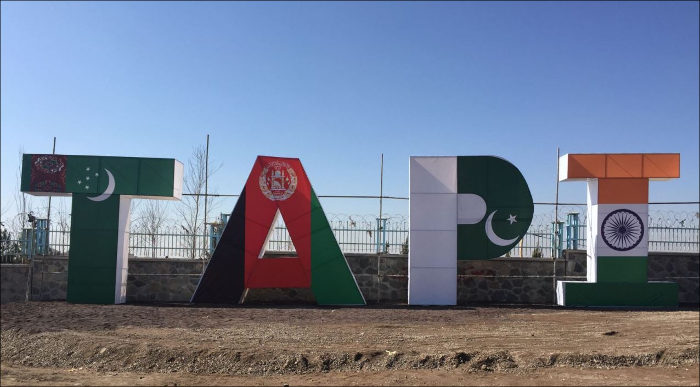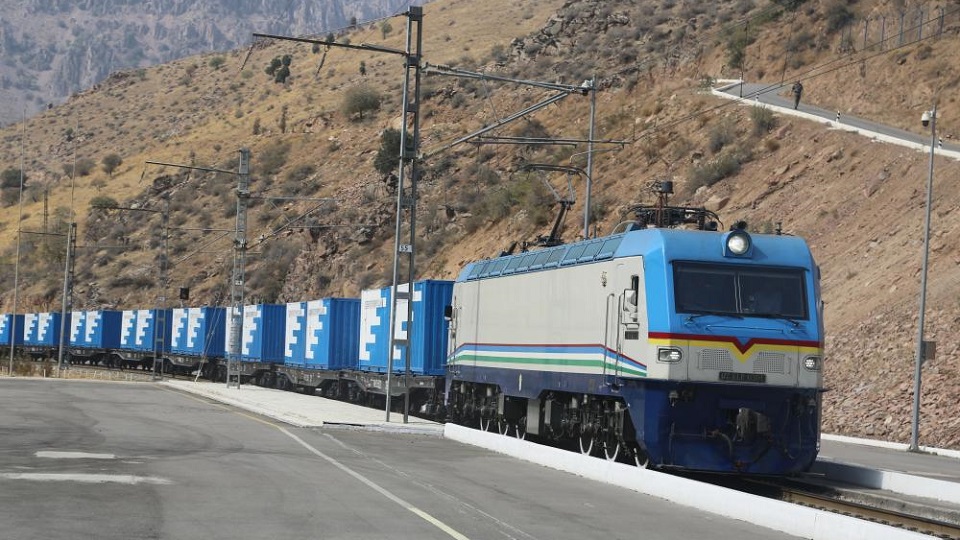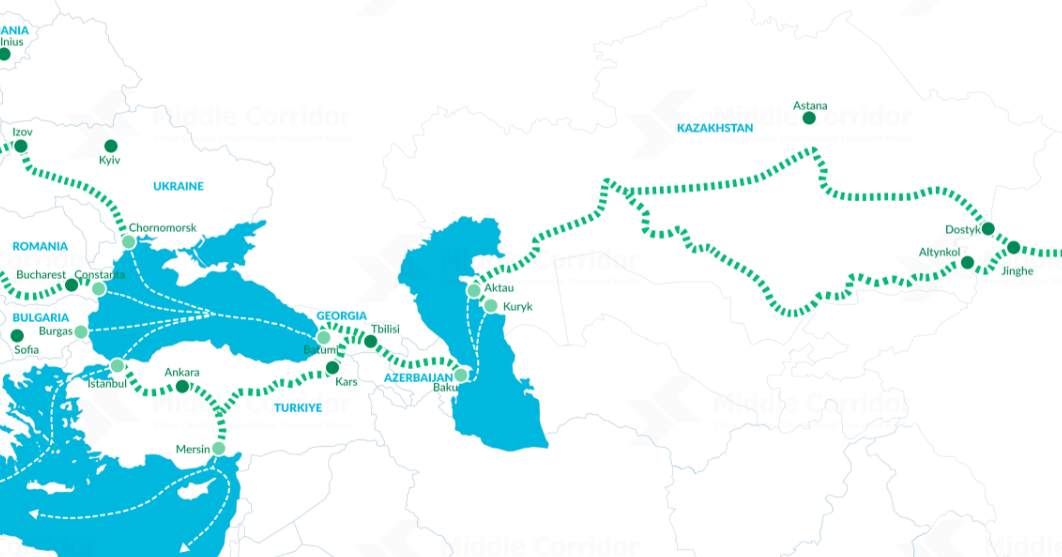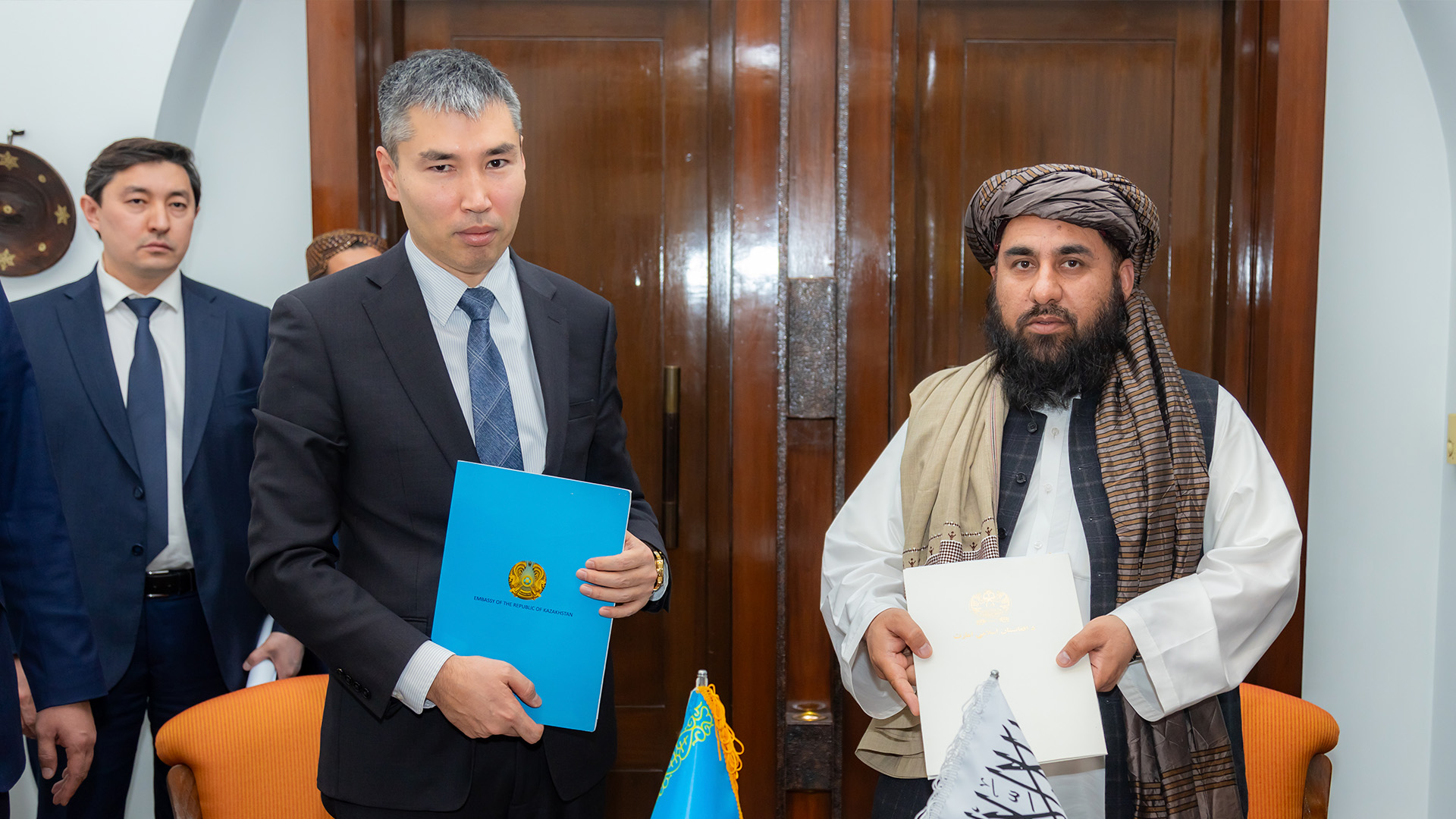
Turkmenistan Resumes Work on TAPI Pipeline Despite Geopolitical Hurdles
Turkmenistan Resumes Work on TAPI Pipeline Despite Geopolitical Hurdles
Executive Summary:
- Earlier this month, a critical section of the Turkmenistan–Afghanistan–Pakistan–India (TAPI) gas pipeline project was inaugurated on the border between Turkmenistan and Afghanistan. The pipeline aims to reshape the energy landscape in Central and South Asia.
- The primary reason behind the project delays has been political uncertainty in the region, the war-like situation in Afghanistan, and rising tensions between Kabul and Islamabad due to terrorist activities along their shared border.
- Interstate rivalries between participating countries and the challenging security environment in Afghanistan and elsewhere point to an uncertain future for the TAPI pipeline, though Ashgabat seems set to push ahead.
On September 11, the inauguration ceremony of a critical section of the Turkmenistan–Afghanistan–Pakistan–India (TAPI) gas pipeline project was held on the border between Turkmenistan and Afghanistan. Afghan Prime Minister Muhammad Hassan Akhund, Turkmen President Serdar Berdymukhamedov, Turkmen People’s Council Chair Gurbanguly Berdymukhamedov, and Turkmen Foreign Minister Rashid Meredov all attended the ceremony (Turkmen Portal, September 11). Ashgabat and Kabul have officially resumed work on the much-delayed pipeline project, which involves the construction of a more than 1,700-kilometer (1,056-mile) pipeline from the Galkynysh gas field in Turkmenistan to the Indian city of Fazilka via Afghanistan and Pakistan (MENAFN, September 12). Ashgabat will finance the construction of the pipeline’s 150-kilometer (93-mile) Turkmenistan-Afghanistan segment, which will extend from the border town of Serhetabat in Turkmenistan to Herat, Afghanistan. The pipeline is set to deliver up to 33 billion cubic meters per annum of gas from Turkmenistan to Pakistan and India via Afghanistan (Upstream Online, September 13). The TAPI pipeline is undoubtedly an ambitious infrastructure project that looks to reshape the energy landscape of Central and South Asia. Still, it faces numerous challenges due to regional unrest, particularly between Afghanistan and Pakistan, and other geopolitical rivalries.
Construction of the TAPI pipeline has been under discussion since the early 1990s. In 2014, a pipeline consortium was announced for the construction of the pipeline at an estimated cost of $10 billion. Construction began in 2018 but was halted due to security issues in Afghanistan (see EDM, December 6, 2021, June 6, 2023). At the opening ceremony on September 11, Akhund said, “We have been waiting for this day for years.” Additionally, Turkmenistan’s president, Serdar Berdymukhamedov, stated, “The start of these projects demonstrates the good neighborliness of our countries. These projects are beneficial not only for the people of Afghanistan and Turkmenistan but also for the countries of the region” (Tolo News, September 11).
Through the pipeline, energy-rich Turkmenistan, whose Galkynysh gas field is ranked as the world’s second-largest, would gain access to South Asia markets. The Turkmen economy will, in turn, receive a boost from the supply of gas to Pakistan and India. While the country’s state-owned energy company Turkmengaz holds an 85-percent stake in the project, Afghanistan, Pakistan, and India hold 5-percent shares each (News AZ, September 12).
Russia’s growing interest in the project and the presence of militant groups in Afghanistan pose significant challenges to the pipeline’s security. As Moscow faces Western sanctions over its invasion of Ukraine, a stronger strategic partnership with Ashgabat could pay long-term strategic dividends for the Kremlin. Participation in the TAPI project is becoming essential for Russia, as it would allow the Kremlin to divert its energy exports away from Europe to South Asia. Moreover, the project could expand Russian influence in South Asia, as Moscow would become a central player in the integration of energy infrastructure in Central and South Asia (see EDM, June 6, 2023).
In 2023, Moscow first began to show renewed interest in the TAPI pipeline. Russia’s state-owned energy giant Gazprom revealed its plans to reverse the gas flow in a system of pipelines built during the Soviet era to deliver gas from Central Asia to Russia. For example, the Soviet Central Asia–Center gas pipeline system—the first transcontinental gas trunkline system in the Soviet Union—could be upgraded to carry Russian gas from Western Siberia to Kazakhstan, Uzbekistan, Kyrgyzstan, and Turkmenistan (Upstream Online, November 22, 2023). That system could link into the TAPI pipeline, taking Russian gas all the way to the Indian Ocean.
The main reason behind the repeated delays in the execution of the TAPI project has been political uncertainty and the war-like situation in Afghanistan over the past three decades (see Terrorism Monitor, July 16, 2021, May 30; see Militant Leadership Monitor, April 18; see EDM, July 10). The present Taliban regime in Kabul has pledged to provide adequate security and has purchased land along the pipeline’s route to ensure the safety of those working on the project. Despite the Taliban’s assurances, however, the situation on the ground has not alleviated these security concerns. The presence of militant outfits on Afghan soil, particularly in areas along the Afghan-Pakistani border (where the pipeline would enter the Balochistan province of Pakistan), has emerged as a persistent threat to the pipeline’s completion (News AZ, September 12). Terrorist hideouts in Afghanistan’s border areas with Pakistan have created a volatile situation along the border, and escalating tensions between Islamabad and Kabul pose enormous security challenges to the TAPI pipeline.
The Taliban has yet to fulfill the commitment they made in the 2020 Doha Accord with the United States that it would not allow Afghan territory to be used by terrorist groups against other countries. Islamabad blames the Taliban for harboring the outlawed Tehreek-e-Taliban Pakistan (TTP), an Afghanistan-based terrorist group orchestrating cross-border attacks against Pakistan (Al Jazeera, February 29, 2020). TTP, which is ideologically closer to the Taliban, is responsible for hundreds of terrorist attacks inside Pakistan (see Terrorism Monitor, March 1). The group’s presence on Afghan soil has been the root cause of tensions between the neighbors. The Taliban government, however, dismisses Pakistan’s allegation and denies that terrorist entities have used Afghan territory against any country (see Terrorism Monitor, February 8, July 1, 2022).
Kabul-Islamabad tensions have been on the rise since the Taliban retook power in 2021 (Dawn, August 16, 2021; see Terrorism Monitor, December 7, 2021). Most recently, on September 8, fierce clashes between the border security forces of Pakistan and Afghanistan over the construction of a new military outpost resulted in the death of eight Afghan soldiers (Dawn, September 9). Such border clashes reflect the consistent deterioration of relations between the two South Asian neighbors. Earlier, in March, Pakistan conducted airstrikes inside Afghanistan, targeting TTP hideouts. In retaliation, the Taliban opened fire on a Pakistani military posts along the Afghan border (Dawn, March 18; see Terrorism Monitor, April 5).
Other geopolitical rivalries in the region look to further stunt the completion of the TAPI pipeline. For example, Pakistan and India represent the major potential buyers of Turkmen gas. While Turkmenistan has resumed work on its section of the pipeline, ongoing tensions between Islamabad and New Delhi may impede the completion of other sections. Thus, despite Ashgabat’s optimism, interstate rivalries between participating countries and the challenging security environment in Afghanistan and elsewhere signal an uncertain future for the TAPI pipeline.


